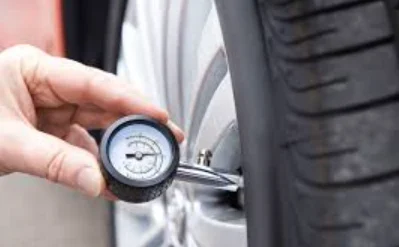Maintaining the correct tyre pressure in your Vauxhall Corsa is crucial for ensuring safe and efficient driving.
Under-inflated or over-inflated tyres can lead to a variety of problems, impacting everything from fuel economy to handling and even tyre lifespan.
This comprehensive guide provides everything you need to know about Vauxhall Corsa tyre pressure, from finding the right values to keeping your tyres in top condition.
Finding the Right Tyre Pressure
Vauxhall Corsa tyre pressure recommendations vary depending on several factors, including:
- Model year: Tyre pressure requirements have changed over the years, so referencing your exact car’s manual is essential.
- Engine size and type: Different engine weights and performance capabilities can necessitate different tyre pressures.
- Tyre size and type: Summer tyres, winter tyres, and run-flat tyres will all have different recommended pressures.
| Generation | Trim | Front Tyre (PSI) | Rear Tyre (PSI) |
| First | GLS | 32 | 30 |
| Club | 32 | 30 | |
| Second | Comfort | 33 | 31 |
| Elegance | 33 | 31 | |
| Third | Active | 34 | 32 |
| Design | 34 | 32 | |
| Fourth | SXi | 35 | 33 |
| Sting | 36 | 34 | |
| Energy | 36 | 34 | |
| Elite | 37 | 35 | |
| Fifth | SE | 36 | 36 |
| SRi | 37 | 37 | |
| Ultimate | 37 | 37 |
The most reliable source for finding the correct tyre pressure for your Corsa is always the vehicle handbook.

It will typically display a sticker inside the driver’s door jamb or a dedicated section in the manual outlining the recommended pressures for various tyre sizes and loading conditions (normal and fully loaded).
The Importance of Correct Vauxhall Corsa Tyre Pressure
Maintaining the correct tyre pressure offers several benefits for your Corsa:
- Enhanced safety: Properly inflated tyres provide better grip and handling, reducing the risk of accidents.
- Improved fuel economy: Under-inflated tyres create more rolling resistance, leading to increased fuel consumption.
- Extended tyre life: Correctly inflated tyres wear evenly and last longer.
- Smoother ride: Properly inflated tyres absorb bumps and imperfections in the road, resulting in a more comfortable ride.
Checking and Adjusting Tyre Pressure
- Frequency: Check your tyre pressure at least once a month, and more often during extreme weather conditions.
- Equipment: Use a reliable tyre pressure gauge. Most petrol stations offer free air pumps with built-in gauges.
- Technique: Measure the pressure when the tyres are cold (not driven for at least two hours).
Remove the valve cap, press the gauge firmly onto the valve stem, and note the reading. Inflate or deflate the tyre to the recommended pressure using the pump or a tyre inflator.
- Spare tyre: Don’t forget to check and adjust the pressure in your spare tyre as well.
Additional Tips
- Consider investing in a Tyre Pressure Monitoring System (TPMS), which alerts you if any tyre pressure falls below a certain level.
- Be aware that extreme temperature changes can affect tyre pressure. Check your tyres more frequently during hot or cold weather.
- If you notice uneven tyre wear, have your car’s alignment checked.
Conclusion: Drive with Confidence with Optimal Corsa Tyre Pressure
Maintaining the right tyre pressure in your Vauxhall Corsa is a simple yet crucial step for safe and enjoyable driving.
By following the tips and information in this guide, you can ensure your tyres perform at their best, maximizing fuel economy, extending their lifespan, and enhancing your driving experience.
Remember, correct tyre pressure is an investment in safety, performance, and ultimately, the value of your Corsa. So, grab your pressure gauge, check your tyres regularly, and hit the road with confidence!
FAQs: Your Corsa Tyre Pressure Questions Answered
Q: I can’t find the recommended tyre pressure for my specific Corsa model.
The most reliable source is always your vehicle handbook. If you can’t find it there, online resources like Vauxhall Tyre Pressure website or Michelin Tyre Selector can help based on your car’s details. Don’t hesitate to contact Vauxhall if you’re still unsure.
Q: How often should I check my tyre pressure?
At least once a month, more often during extreme weather. Consider a Tyre Pressure Monitoring System for constant monitoring.
Q: My tyres are slowly losing pressure. What could be the reason?
A small puncture, a damaged valve stem, or loose alloy wheels could be the culprit. Get your tyres checked by a professional.
Q: Can I drive with slightly under-inflated tyres?
It’s not advisable. Even minor under-inflation can affect safety and fuel economy. Check and adjust the pressure as soon as possible.
Q: My tyres are unevenly worn. Is it due to incorrect pressure?
Incorrect pressure can contribute, but misalignment could also be the cause. Have your car’s alignment checked by a qualified mechanic.

